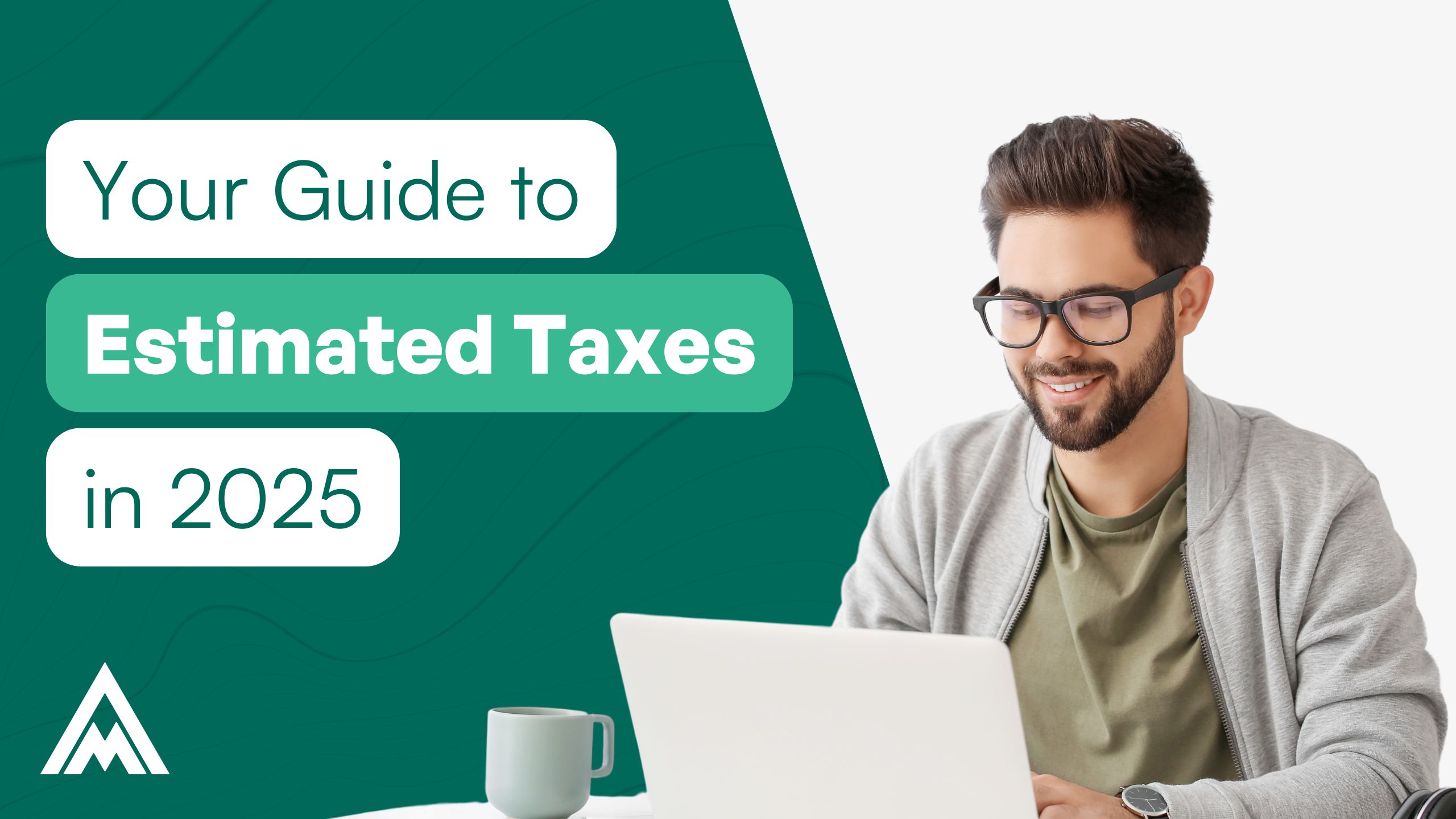As a Colorado-based business owner or high-income individual, the IRS places the responsibility of scheduling and paying estimated taxes directly on you. Unlike your typical bills, they won’t remind you—and failing to pay on time can lead to penalties.
The key is to stay organized and avoid those penalties. Setting up reminders or using a calendar is a great start.
You can also save time and hassle by having an accounting firm file your estimated taxes for you!
If you’d like our help with that or any other tax-related questions, feel free to reach out.
Let’s walk through who needs to pay Colorado estimated taxes, how to calculate what you owe, and when to pay.
Who Has to Pay Estimated Taxes?
If you’re a Colorado-based business owner, freelancer, or 1099 contractor, you must pay estimated taxes four times a year (not just once!) to avoid penalties.
When you’re an employee, your employer withholds taxes from your paycheck throughout the year. But if you’re self-employed, freelancing, or working as a 1099 contractor, you’re responsible for handling your own taxes—and that means paying them quarterly.
Do I Need to Pay Estimated Taxes?
The rule is simple: If you expect to owe the IRS $1,000 or more when you file your tax return, you’re required to pay estimated taxes. This applies to freelancers, 1099 contractors, and small business owners because no one is withholding taxes for you.
So instead of waiting until tax season to pay everything at once, the IRS wants you to spread those payments out. You’ll estimate your tax liability based on your income, and make quarterly payments—in April, June, September, and January.
Common Situations Where You Have to Pay Estimated Taxes
- Freelancers & 1099 Contractors: If you’re freelancing or working as an independent contractor, whether you’re a designer, writer, consultant, or gig worker, you need to pay estimated taxes four times a year.
- Small Business Owners: If you run a business (sole proprietorship, S-Corp, or partnership) and expect to owe more than $1,000 in taxes, you’ll need to make estimated payments.
- Side Hustlers: If you have a full-time job and a side gig, your paycheck might not cover the taxes on your side income, which means you’ll have to pay estimated taxes on that extra money.
- Rental Property Owners & Investors: If you’re making money from rental properties or investments, you might also need to pay estimated taxes.
Why Are Estimated Taxes Important?
If you skip making these estimated payments and end up owing more than $1,000 at the end of the year, the IRS can charge you interest on the penalties. It’s their way of making sure that everyone is paying taxes as they earn income—whether it’s through paycheck withholding or as a self-employed person paying on your own.
Even if your income comes in waves (like from big projects or seasonal work), you still need to make those quarterly payments to stay on track.
When Are Estimated Taxes Due?
Estimated taxes are paid four times a year. The deadlines are easy to remember if you think of them as quarterly payments. Here’s the schedule:
- April 15: This payment covers the first quarter of the year (January through March).
- June 15: This payment covers the second quarter (April through May).
- September 15: This payment covers the third quarter (June through August).
- January 15 of the following year: This payment covers the fourth quarter (September through December).
If the 15th falls on a weekend or holiday, the deadline moves to the next business day, but it’s best not to wait until the last minute.
Setting up calendar reminders can help you stay on top of these dates and avoid penalties.
What Happens If You Miss a Deadline or Make a Late Payment?
If you miss one of these quarterly deadlines or don’t pay enough, the IRS may charge penalties and interest on what you owe. The amount of the penalty depends on how late your payment is and how much you owe. Here’s what you need to know:
- Penalties: If you miss a payment or don’t pay enough, the IRS will charge a penalty for underpayment. The penalty amount depends on how much you underpaid and how late the payment is. Even if you pay in full at tax time, you could still owe penalties if your quarterly payments were too low.
- Interest: In addition to penalties, the IRS also charges interest on any unpaid estimated tax amount. The interest rate changes quarterly and is based on the federal short-term interest rate plus 3%. Interest starts building from the date the payment was due until you pay in full.
What to Do If You Miss a Payment or Owe Penalties
If you miss a payment deadline or owe more than expected, don’t panic. The best thing you can do is pay what you can as soon as possible. Even if you can’t make the full payment, paying something will reduce the interest and penalties.
You can also set up a payment plan with the IRS if you owe more than you can afford to pay right away.
Just remember that the IRS is less forgiving than your typical vendor, so it’s important to stay on top of your estimated taxes to avoid penalties piling up.
How to Avoid Penalties
To avoid penalties, the IRS requires you to pay either:
- At least 90% of the total tax you’ll owe for the year, or
- 100% of what you owed the previous year (or 110% if your adjusted gross income was more than $150,000).
If you’re using the 100% rule, you can base your estimated payments on your previous year’s tax return, which is a good option if your income is consistent.
This “safe harbor” rule ensures you won’t face penalties, even if your income for the current year is higher than expected.
Just be aware that you’ll still need to pay any extra taxes owed when you file.
Need More Help With Your Colorado Estimated Taxes?
Managing estimated taxes as a 1099 contractor, freelancer, or business owner in Colorado can feel overwhelming, especially with multiple deadlines, penalties, and calculations to juggle. But it doesn’t have to be stressful.
By understanding when your payments are due, how much to set aside, and the consequences of missing a payment, you can stay ahead of the game and avoid costly penalties. Remember, the key is organization and consistency.
Still confused about how much you’ll owe or have other accounting questions? Mahoney CPA is here to help.
Whether you need help calculating your estimated taxes or managing your overall business finances, we’ve got your back.
👉 Use our calendar to book an introductory call—we’re always here to help!
Until next time!



